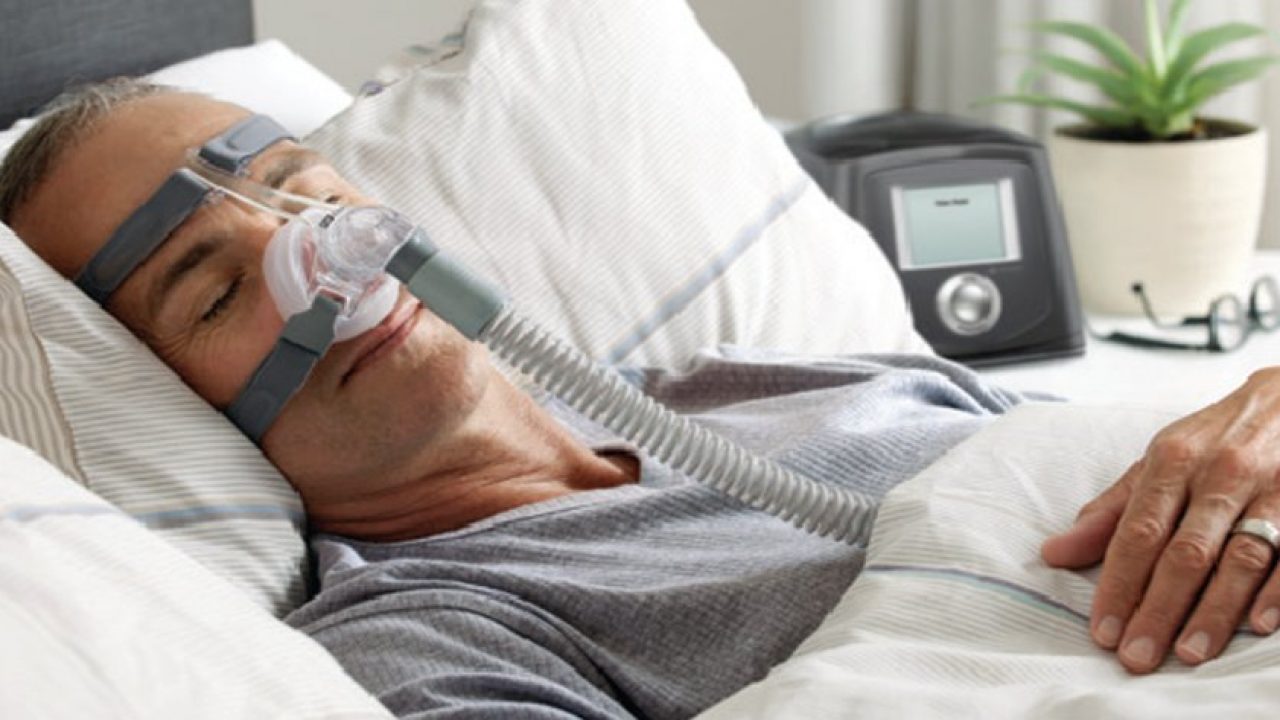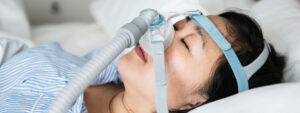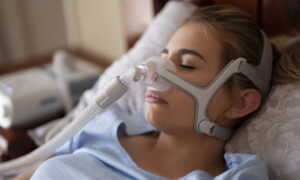A medication called continuous positive airway pressure (CPAP) maintains a constant air pressure in your airways. It makes it simpler to breathe when you sleep and keeps your upper airway from contracting. A typical therapy for acute heart failure and obstructive sleep apnea is CPAP. CPAP masks are trustworthy and efficient. However, some users encounter issues with the gadget that might make therapy more difficult. This article examines 10 methods that may assist in resolving these issues and enhancing your CPAP experience.
Taking breaths against pressure
Learning to breathe out against the pressure is one of the most difficult changes to make when you first start, you can get more information if new to CPAP treatment by clicking here. When turning on the machine, try adjusting the pressure lower. The pressure may be progressively increased as you begin to nod off. An example of a ramp function is this.
Additionally, some devices offer options for bi-level (BiPAP) or C-Flex. It is more like natural breathing since they switch off between applying pressure during intake and exhale.
Consult your healthcare physician if you’re still having problems breathing despite the pressure. The pressure setting could be too high for you.
Breathing Air
Some CPAP users find it unpleasant to swallow air. You could feel bloated afterward, or you might burp. This may indicate that your pressure setting is too high.
You may need to do one of the following to fix this: Reduce the pressure; Purchase a Ramp Pressure Device; or Conduct a New CPAP Titration Study to Determine a Better Pressure Level.
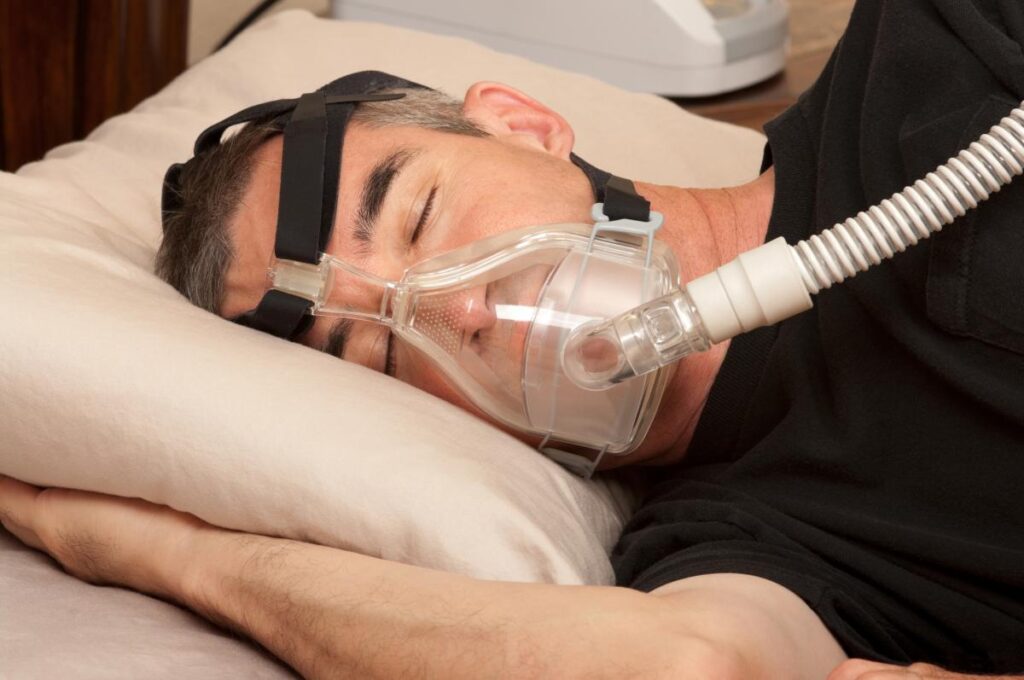
Getting Over Claustrophobia
Your face is covered by a CPAP machine. Some individuals feel choked or suffocated by the close fit. Your heart may start to rush at that sensation. You may want to rip the CPAP masks off. All of the symptoms indicate claustrophobia.
Some folks obtain a mask that doesn’t cover their nose to get around this. Nasal pillows are a nice illustration. Others adopt methods for relaxation or diversion, such watching TV or listening to music. These techniques aid in their progressive acclimatization to the feeling of wearing a mask.
Managing Condensation
Breathing might be more pleasant when there is more moisture in the air. But sometimes, water stains form within the CPAP tube. The additional water may cause your airflow to decrease. People who sleep in a colder area and use heated humidifiers often complain about having too much moisture.
Reduce the temperature of your humidifier to get around this. Put the CPAP tubing beneath a blanket to try to keep it a little warmer. Or you might decide on a more recent CPAP machine with heated climate-adjustable tubing.
The CPAP machine may be placed on the floor to prevent the CPAP masks from becoming too wet.
Making Your Mouth Dry
Using a CPAP machine shouldn’t cause your mouth to get dry. If it happens, the mask may be causing your mouth to open. Your mouth will get exceedingly dry and the airflow will leave in this situation.
Try the following to avoid this:
- Using a heated humidifier
- Changing to a mask that covers the mouth and nose
- Wearing a chin strap to keep the mouth shut
- Having a discussion with your doctor about changing the machine’s pressure setting
Detecting Unpleasant Smells
Your CPAP apparatus has to be kept clean. Regularly adhere to cleaning directions. It’s possible that your CPAP masks and tubing may start to smell unpleasant if you don’t. If you’ve just been ill, cleaning is extremely crucial.
You may need new equipment if the scent from your CPAP masks persists. Any unpleasant “new” scent should gradually disappear.
If you use a humidifier at night, only put distilled water in the reservoir. This will lessen the possibility of unwanted odors and scale accumulation.
Affecting Your Face with Marks
When you use your CPAP masks, it is pretty typical to develop a few tiny pressure marks on your face. If the markings are many, your CPAP masks could not fit well. You may need to choose a new mask or try one in a different size.
In order to alter the pressure points, some individuals find it useful to move between several kinds of CPAP masks from one night to the next. To avoid abrasion if your skin gets sensitive, consider using petroleum jelly or a face cream. The CPAP liners create a barrier between your skin and the CPAP masks.
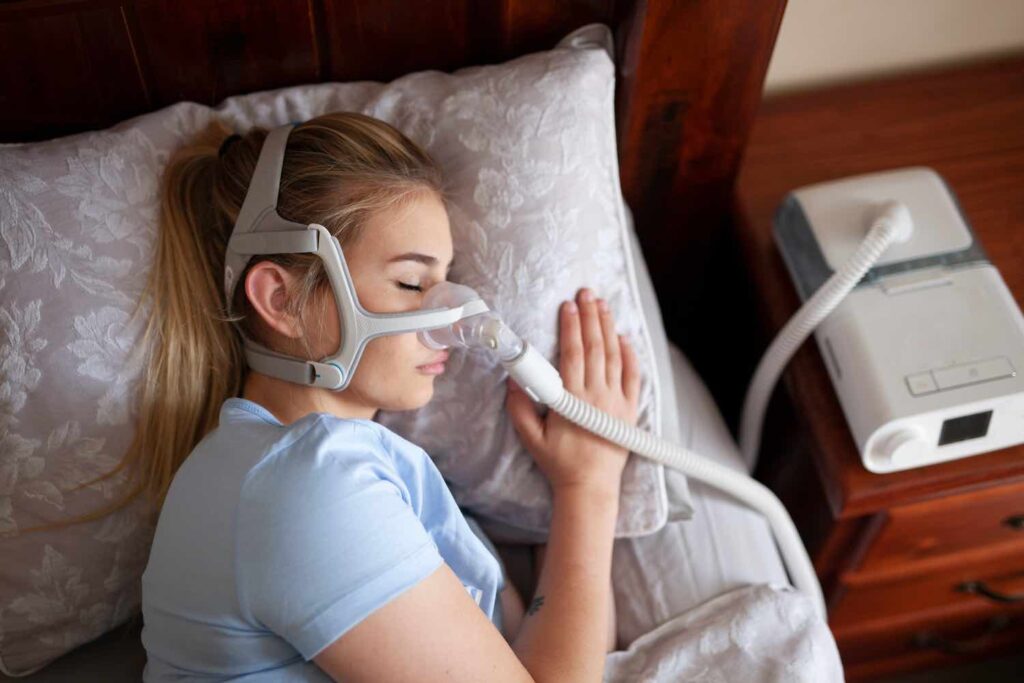
How to Manage Nasal Congestion
With CPAP masks on, it could be more difficult for those with a deviated septum, allergies, or a history of nasal congestion to breathe through their nose.
Nasal airways may sometimes be opened with a warm humidifier or saline nasal spray. Seasonal or ongoing allergies may be treated with prescription nasal spray or oral antihistamines.
There are other options that could be helpful for folks who just cannot breathe via their nose. CPAP masks that cover the mouth and nose could work for you. A more recent oral CPAP mask that solely distributes pressure via the mouth is another option. You may need to think about trying different therapies if they don’t work.
Dry, red eyes upon awakening
Dry, bloodshot eyes might indicate that when you sleep, air is seeping from your CPAP masks into your eyes. Try gently tightening the CPAP masks to stop this. If this doesn’t work, you may need to locate a mask that fits you better. Saline eye drops might also aid in reducing some of the irritation and redness.
Chronic Symptoms
When you start using CPAP, excessive daytime drowsiness frequently lessens. But for other individuals, symptoms might come back over time.
Check your equipment to make sure it is producing the proper pressure if this happens. To discover a better pressure, it can also be essential to do a fresh titration research. The original pressure setting could no longer be appropriate when individuals become older or experience weight fluctuations. It could need adjusting.
When using CPAP, your pressure level may need to be adjusted if you start to snore. It may need to be adjusted.
Summary
A tried-and-true remedy for those with respiratory issues is CPAP equipment. However, it doesn’t imply they are devoid of issues. The pressure setting may be the source of several issues. Others include a CPAP mask that doesn’t fit quite correctly or a tubing issue. Other medical issues might also make the therapy more difficult. Speak with your healthcare practitioner if you’re experiencing issues with your CPAP machine. You may be able to find a simple method to improve your ability to sleep.
More to read: A Comprehensive Guide to Laser Eye Surgery Types to Help You Decide
